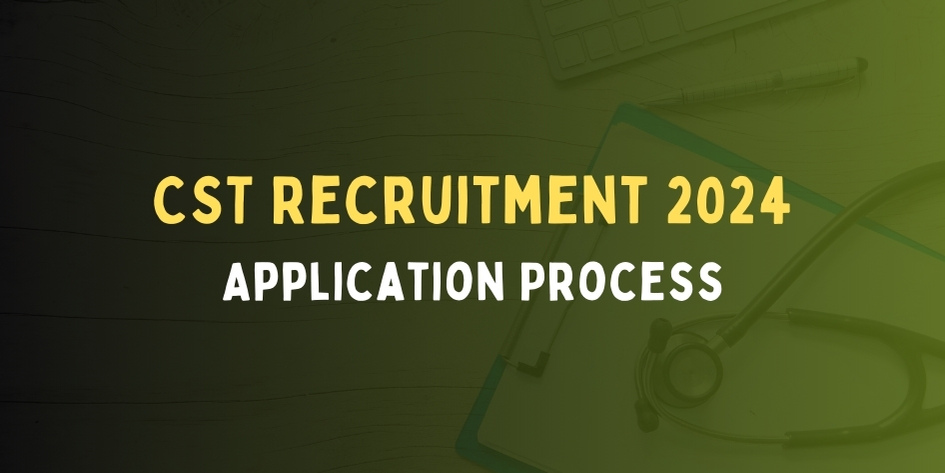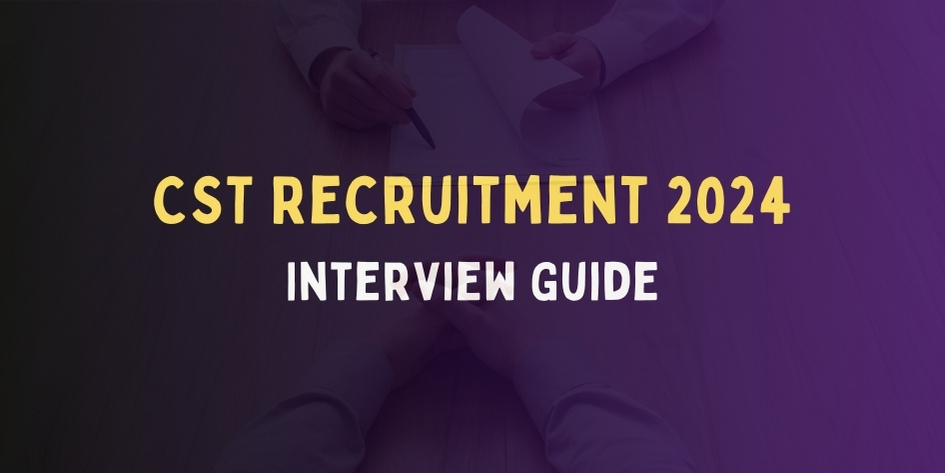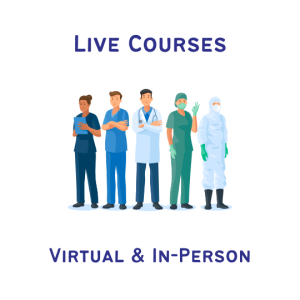
Published November 24, 2022 | Updated November 4, 2024
By Ash Ahluwalia
Orthopaedic Registrar in London, surgical director of MedCourse, and founder of The London Course – interview courses for core and higher speciality training programmes.
Core Surgical Training (CST) is the most common pathway for foundation-equivalent doctors to start their training in surgery, leading to higher surgical training. CST is a highly competitive programme which almost always fills 100% of the available places, so it’s important that you give yourself every possible advantage while applying for CST!
In this guide, we will talk you through everything you need to know about the 2025 CST application, including advice on how to maximise your application points and get the surgical job that you want!
*Note – the points and timeline for 2024/25 are not yet published. You can expect this to happen in late October 2024*
Hints and Tips by Mr Aashish Ahluwalia
I am a Trauma and Orthopaedic Registrar at University College London Hospital. After obtaining my first choice Core Surgical Training job in London and completing a PGCert in Medical Education, I designed and lead The London Core Surgical Training Interview Course, to help as many junior doctors achieve success in the CST interview to obtain their first-choice job.

Following a successful ST3 Trauma and Orthopaedics application, I have set up The London ST3 Trauma and Orthopaedics Interview Course to help applicants on their path into surgery.
Key Documents
CST Recruitment Timeline
| Applications open | Thursday 24th October 2024 at 10am |
| Applications close | Thursday 21st November 2024 at 4pm |
| MSRA Exam | TBA – planned for two rounds, one in Jan, one in Feb |
| Interview Invites | Thursday 6th February 2025 |
| Evidence Upload | Between Friday 7th and Wednesday 19th February 2025 |
| Preferencing | Between Thursday 1st February and Tuesday 4th March 2025 |
| Interviews | Between Monday 24th February and Friday 7th March 2025 |
| Initial Offers out | By Tuesday 25th March 2025 by 5pm |
| Hold Deadline | 1pm on Thursday 3rd April 2025 |
| Upgrade Deadline | 4pm on Tuesday 8th April 2025 |
| Post start date | Wednesday 6th August 2025 |
How Does Core Surgical Training Work?
Core Surgical Training (CST) is very much the first step of surgical training in the United Kingdom. The programme is open to those who have completed their foundation years 1 & 2 or have earned foundation competencies by other means. On entering Core Surgical Training, you become a Surgical “SHO”, as it was termed before the adoption of CST.

Some training programmes are “themed”, meaning that your CST placements will include a bigger emphasis on the theme speciality and affiliated specialities, usually spending 12-18 months in the speciality of choice. Those not in themed programmes will rotate across a number of associated surgical specialities in 6-month placements.
Those that have ranked highly enough will be able to prioritise the jobs that include your speciality of interest. If you can muster a strong performance in the CST application, you can obtain a competitive placement and can work in a more desirable location. Doing well at the CST stage will also give you a better foundation for when you go on to the ST3 application.
A Core Surgical Trainee will have clinical commitments, regardless of speciality. This includes:
- On-call days, nights, and weekends
- Theatre sessions
- Clinics
- Ward duties
Non-clinical opportunities will exist throughout training, such as audits, research, and teaching. Those successful in their CST applications will be all too familiar with these roles. You will also have regional formal protected teaching sessions which in London, for example, focuses on Anatomy.
You will be expected to complete your MRCS while a Core Surgical Trainee, prior to applying for an ST3 post, which you can do once in your second year of Core Surgical Training.
The CST Recruitment Process
Recruitment for Core Surgical Training (CST) takes place twice per year – during round 1 of speciality recruitment, and the round 1 re-advert. Round 1 re-advert is a chance for Deaneries to fill remaining posts, however as CST is a very competitive programme this is not usually a viable option for applicants.
To apply for CST, you must have no more than 18 months of experience in Surgery (excluding foundation modules) at the time of application.
Round 1 for CST recruitment 2025 will post vacancies and job adverts in October 2024, on the Oriel platform. You can also find documents relevant to CST recruitment in the Oriel resource bank, and keep on top of updates on their news page.
Who Can Apply for CST?
Suitability to Core Surgical Training is listed in the Person Specification. It is important to ensure you are an applicable candidate.
For those in the Foundation Programme, most of the competencies will be covered in your mandatory portfolio requirements.
For those who are not in the Foundation Programme, please familiarise yourself with the basic level of competencies and essential criteria required prior to applying to Core Surgical Training.
Most surgical specialities recruit trainees at the ST3 level following the completion of CST. The only surgical specialities which don’t recruit trainees from the CST pathway are:
- Academic – Recruits via Academic Clinical Fellowships only, from ST1.
- Cardiothoracic Surgery – For 2023 recruitment, cardiothoracic surgery will only recruit from ST1 level on their run-through programme.
- Neurosurgery – Run-through programme recruiting only, from ST1 & ST2.
- Surgical Ophthalmology – Run-through programme only recruiting, from ST1.
While run-through programmes also exist for cardiothoracic and oral & maxillofacial surgery trainees, these programmes also recruit at an ST3 level.
There are 10 recognised surgical specialities, excluding surgical ophthalmology, and gynaecological surgery, which recruit via their own pathways. Some of these specialities also allow for sub-specialisation later. For example, general surgeons can later specialise in breast, colorectal, endocrine, upper gastrointestinal, and transplant surgery.
| Speciality | Entry at ST1 or ST3? |
| Academic | ST1 |
| Cardiothoracic | ST1* |
| ENT | ST3 |
| General | ST3 |
| Max-Fax | ST1 & ST3 |
| Neurosurg | ST1 & ST2 |
| Ortho | ST3 |
| Paediatric | ST3 |
| Plastics | ST3 |
| Urology | ST3 |
| Vascular | ST3 |
For international medical graduates (IMGs), entry into the surgical training pathway is possible at the foundation, CT/ST1, and ST3 levels, so long as you meet the eligibility requirements. See more on this excellent article by Road to UK.
The CST Application
Application for Core Surgical Training opens on 24th October 2024 for the August 2025 start date. All applications are processed Vacancies are posted on the Oriel platform, and all applications must be made through Oriel.
Once you have registered on Oriel, you will find CST vacancies on the left-hand side – “Applicants” > “Medical and Public Health Specialities”. Click the vacancies tab at the top left and search “Core Surgical Training” in the “Training programme” box, then click search. There you will find CST posts for Northern Ireland (NI) and the rest of the UK (LaKSS).
Application Deadline
You will have until 4 pm on Thursday 23rd November 2023 to submit your application. In the application form you must fill in:
- Your personal details
- Confirmation of your eligibility for Core Surgical Training
- Equality and diversity details
- A portfolio self-assessment score
Ash’s Tips
This is a marathon, not a sprint.
The application process changes each year, and it is paramount to familiarise yourself with these changes. There are 3 key aspects to the application, each with different weightings – your MSRA score, your verified self-assessment score, and your interview score.
As general advice, you will be balancing a busy workload as a junior doctor and attempting to perform exceptionally well through last-minute “cramming” will be very difficult. Meticulous and organised planning, months in advance, will give you the best chance of performing well in the application.
CST Portfolio Self-assessment Score
While the Core Surgical Training portfolio self-assessment score is no longer used for CST interview shortlisting, it still makes up 30% of your final score and all sections will add to how comprehensive your surgical CV is.
You will have to back up each claim in your self-assessment with evidence, which will be looked at by a surgical consultant if you make it through to the interview. If you have over-or-under-claimed on your portfolio your score may be amended, and if there are any signs of deception or false representations you may face disciplinary action.
Check out our guide to CST self-assessment scoring for the full low-down on how to get the most of out this section of the application.
Ash’s Tips
This is something you will have been preparing for months, if not years. Being organised and getting your correctly worded certificates and proof of your achievements will hold you in good stead.
Even with only a few weeks till the deadline, there is time to try and obtain points. Go through the self-assessment checklist carefully.
Be smart with your time and energy and prioritise the “low-lying fruit” in the form of audits and teaching, rather than committing time, effort, and money to points that are notoriously difficult to obtain.
CST Longlisting – Eligibility Criteria
Longlisting is the first part of the CST application process, where all ineligible applications are removed – see the eligibility requirements below:
Eligibility Criteria for CST Recruitment
- MBBS or equivalent medical qualification
- Full registration with the GMC at the intended start date (including requirements such as PLAB for IMGs)
- Evidence of foundation competencies in the previous 3.5 years from the start date. Those eligible include any who meet one of the following criteria:
- Currently in a UKFPO-affiliated foundation program
- Have evidence of completion of a UKFPO-affiliated foundation program (FPCC or FACD 5.2)
- Have 12 months of medical experience following full GMC registration and completion of “Certificate of Readiness to Enter Specialty Training”
- Eligible to work in the UK
- English language skills as required for GMC registration
- Health & fitness to practise requirements as per GMC standards
- Evidence of employment history
- No more than 18 months of experience in Surgery
If you have previously left a core surgical training programme, you must provide evidence of ARCP outcome 1 or exceptional circumstances to apply.
If you have left a foundation programme and thus failed to gain an FPCC or FACD 5.2 certificate, you must also provide prove exceptional circumstances in addition to evidence of appropriate remediation.
If you meet the minimum requirements for eligibility, you will be longlisted and will move on to the next stage of recruitment – shortlisting.
CST Shortlisting – The MSRA Exam
Prior to 2023, shortlisting for interview was carried out using the verified self-assessment score. However, since 2023 this has been replaced by the Multi-Speciality Recruitment Assessment (MSRA).
The Multi-Speciality Recruitment Assessment is a computer-based exam which is split into two sections – the Professional Dilemmas (PD) paper and the Clinical Problem Solving (CPS) paper.
The Professional Dilemmas (PD) paper is a 95-minute situational judgement test based on 50 questions. In part 1 of the PD paper, you will be given a scenario and asked to rank 4-5 different responses in order of appropriateness. In part 2, you will be given a scenario, presented with 8 options, and asked to choose the most appropriate 3 answers.
The Clinical Problem Solving (CPS) paper is a 75-minute clinical assessment based on 97 questions. The CPS paper is split into two sections. Part 1 is extended matching questions, where you will be given 7-10 responses and asked to choose the most appropriate answer for multiple different scenarios. Part 2 is single best answer questions, where you will be given a scenario and asked to choose the most appropriate answer. The CPS paper covers aspects of clinical knowledge across many different specialities.
The exam is taken at a Pearson Vue exam centre, and places often get booked quickly.
There are plenty of free resources out there, but if you prefer to attend more formal teaching sessions you can check out our MSRA courses.
The top 1200 applicants, based on their MSRA score, will be invited to interview.
Ash’s Tips
This is the latest addition to the CST application and forms the shortlisting component of the application.
The MSRA has created a lot of controversy since its announcement with regard to its late involvement in the application process and questionable reliability to surgical specialities.
Nonetheless, it is an important part of the application and rather than focusing on its suitability, the focus should continue to be performing well. There are several resources and courses available.
The CST Interview
Interviews for CST in 2025 will all be online using Microsoft Teams, and will take place between 2nd January and 21st March. In 2024 this was planned over 2 weeks, so a shorter period will be announced nearer the time . Your interview will be 20 minutes in total with two main questions, management and clinical scenarios, each lasting 10 minutes. You will have two assessors who will be present for the entire interview.
For more information on the CST Interview, see our CST Interview Guide 2025.
Ash’s Tips
This is the final hurdle and the highest weighted segment of the application (60%).
This will be covered in further detail in the application process but our advice would be to work on your interview skills. The clinical and ethical stations rely on a certain level of knowledge. Still, the differentiating factor will be how this knowledge is communicated effectively, a skill developed through practice and high-yield mock interview circuits.
Please visit our website at www.cstinterview.co.uk for further information on this and how to attend our course.
Competition Ratios 2054 – Is CST Competitive?
As of October 2019, medical jobs have been included in the UK shortage occupation list, meaning eligible overseas doctors can now apply to round 1 of training programmes. This has resulted in increased competition for CST posts for the past 2 years, and you should expect this to continue.

Over the past few years, the competition ratio for CST has been 4 on average, meaning that for every 4 applicants to CST, only 1 person was awarded a post!

| Year | Applications | Posts | Ratio |
| 2023 | 2539 | 609 | 4.17 |
| 2022 | 2302 | 622 | 3.70 |
| 2021 | 2528 | 607 | 4.16 |
| 2020 | 2322 | 605 | 3.84 |
| 2019 | 1896 | 648 | 2.93 |
| 2018 | 1870 | 636 | 2.94 |
| 2017 | 1608 | 629 | 2.56 |
| 2016 | 1622 | 642 | 2.53 |
Ash’s Tips
Each year, the competition grows fiercer.
There is a misconception that it is not as “competitive as it used to be.” Applications have opened to International Medical Graduates (IMG’s) which has inflated the applicant numbers.
Use the MSRA as an opportunity to ensure you are shortlisted. The next stage is the interview – treat it like an exam. We will cover more on the interview in further articles, but this will really form the cornerstone of your application and what secures you your first-choice job.
CST Ranking & Programme Preferences
Total CST Application Score
Your final score following the interview is made up of three parts:
- MSRA score – 10%
- Verified self-assessment score – 30%
- Interview score – 60%
As you can see, a good interview score is the key to getting your number-one-ranked CST job. Once these scores have been calculated, the top 500-600 will be allocated a CST post.
Preferencing
If you have been shortlisted for an interview, you will be invited to preference CST posts around March 2025. When preferencing, you will be asked to sort all of the available CST posts in order of preference, with number 1 being your most desired choice.
You don’t need to worry about choosing your options tactically. When allocating posts, the algorithm goes through candidates starting at #1, looking to see if their top choice is available. If it is, this is offered to them. If not, the algorithm looks at their second choice and repeats the process.
You will be asked to rank all of the placements that you wish to be considered for, leaving out any placements you do not wish to be considered for.
Given all the choices, it’s generally best to start by deciding which geographic regions you don’t want to be considered for. In the UK (excluding Northern Ireland, which recruits separately), you can apply to 15 deaneries areas.
Deaneries in England, Scotland, and Wales
| Region | Indicative Numbers (2024) |
|---|---|
| England – East Midlands | 38 – 43 |
| England – East of England | 0 – 50 |
| England – Kent, Surrey and Sussex | 35 – 39 |
| England – London | 89 – 93 |
| England – North East | 29 |
| England – North West – North Western | 45 – 55 |
| England – North West – Mersey | 24 – 31 |
| England – South West – Peninsula | 19 – 22 |
| England – South West – Severn | 0 – 25 |
| England – Thames Valley | 23 |
| England – Wessex | 23 – 26 |
| England – West Midlands | 50 – 60 |
| England – Yorkshire and Humber | 54 |
| Scotland | 50 – 55 |
| Wales | 39 – 45 |
Be aware of your rank; if your rank is on the lower end and you only rank posts with tough competition ratios, you run the danger of missing out on a spot.
You should also think, in terms of your desired future ST3 speciality, about which speciality rotations you must have, which you would want to have but are not essential, and which you would prefer to avoid.
It’s critical to look at whether the hospitals with your selected specialities are district general hospitals or teaching hospitals. The easiest way to determine which hospitals provide trainees with the most chances is to ask around and conduct some online research – such as on juniordoctors.co.uk.
Teaching hospitals often offer additional chances for professional development, to get involved in research, and to find opportunities to bulk up your CV. Additionally, you may receive more assistance and have a greater chance to see rare conditions.
District general hospitals, on the other hand, might be better able to give you the knowledge and abilities to handle a wider variety of common conditions.
Ash’s Tips
Each deanery, each rotation, and each trust will have its own advantages and disadvantages. It would be near impossible to rank each hospital for its suitability for you. Geography will play a huge part in deciding which region you rank.
Beyond that, CST is relatively standardised. The aim should be to choose rotations that will suit your ST3 applications. Operative experience vs service provision will be an issue in most hospitals.
DGH’s tend to provide more theatre experience but more service provision (on-calls and ward duties). Academic/ teaching hospitals tend to be better staffed with more academic opportunities but this may come at the cost of operative experience.
Your CST experience will come down to you. Seizing opportunities as they arise and being enthusiastic will allow you to make the most of being a CST, no matter where you end up. Should you feel your training is being compromised or not as per the ISCP curriculum, ensure this is flagged earlier rather than later.
















